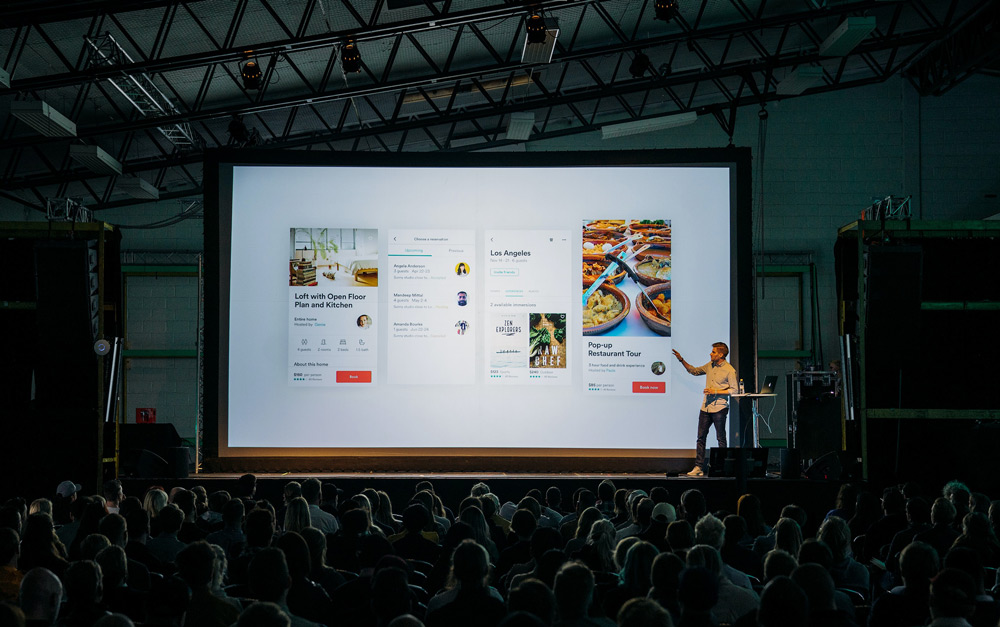A Glimpse into the Future: 10 Event Trends to Watch for in 2024
The events industry is constantly evolving, and staying ahead of the curve is essential for event planners who want to create memorable and successful experiences for their clients and attendees. As we look ahead to 2024, several exciting event trends are emerging, each offering unique opportunities and challenges. In this blog, we'll delve into the top event trends that event planners should keep a close eye on in 2024.
Whether you're an experienced event professional or just starting your career, these trends will help you navigate the dynamic landscape of event planning.
Trend #1: Hybrid Events Become the Norm
Hybrid events, which blend in-person and virtual components, have proven their value over the past couple of years. In 2024, they are set to become the standard rather than the exception.
Event planners must embrace this trend by incorporating digital elements to increase accessibility and engagement. Hybrid events offer a broader reach, catering to both on-site and remote attendees, making them an attractive option for clients seeking to maximize their event's impact.

Trend #2: Sustainability Takes Center Stage
Sustainability is no longer a niche concept; it's a mainstream expectation. Event planners in 2024 must prioritize sustainability by reducing waste, sourcing eco-friendly materials, and incorporating green practices. Clients and attendees increasingly seek events that align with their values, making sustainability a crucial selling point.
This trend is not only environmentally responsible but also economically beneficial as it can lower costs in the long run.
Trend #3: Personalized Experiences with AI
Artificial Intelligence (AI) is transforming the events industry by enabling personalization on a grand scale. AI-driven algorithms can analyze attendee data to create customized event experiences.
From personalized schedules to tailored content recommendations, AI enhances attendee satisfaction and engagement. Event planners should explore AI-powered tools to create more meaningful and memorable events.

Trend #4: Immersive Technologies
In 2024, expect to see more immersive technologies such as augmented reality (AR) and virtual reality (VR) integrated into events. These technologies can transport attendees to virtual worlds, create interactive product demonstrations, or enhance storytelling experiences.
Event planners can leverage AR and VR to captivate audiences and provide unique, immersive event experiences.
Trend #5: Contactless Experiences
The ongoing focus on health and safety will continue to shape event trends in 2024. Contactless registration, ticketing, and payment options will be expected at events. Additionally, touchless technology, such as facial recognition for check-in or mobile apps for ordering food and beverages, will become standard features to minimize physical contact and enhance attendee safety.

Trend #6: Inclusivity and Accessibility
Events in 2024 will prioritize inclusivity and accessibility. Event planners must ensure that their events are welcoming and accommodating to attendees of all abilities.
This includes providing sign language interpreters, accessible venues, and digital content that complies with accessibility standards. Inclusivity not only fulfills ethical obligations but also opens doors to a wider audience.
Trend #7: Influencer Partnerships
Collaborating with influencers and industry experts can be a powerful way to boost event attendance and engagement. Event planners should consider partnering with influencers who align with their event's theme or target audience.
Influencers can promote events, host sessions, and provide valuable endorsements that resonate with their followers.
Trend #8: Health and Wellness Integration
Wellness trends are infiltrating the events industry as attendees seek holistic experiences that prioritize their physical and mental health. Incorporating wellness activities like yoga sessions, mindfulness workshops, and healthy catering options can enhance the overall event experience.
Health-conscious choices are likely to be appreciated and expected by attendees.
Trend #9: Data-Driven Decision Making
Data analytics will continue to play a crucial role in event planning in 2024. Event planners can harness data to gain insights into attendee behavior, preferences, and engagement levels.
These insights can inform event strategy, helping planners make data-driven decisions to improve future events and enhance ROI for clients.
Trend #10: Sustainable Event Tech
As sustainability gains prominence, event technology is following suit. Look out for eco-friendly event tech solutions, such as LED lighting, energy-efficient AV equipment, and digital signage. Sustainable tech not only aligns with green initiatives but also reduces energy costs and environmental impact.
Emerging ideas for sustainable event tech includes:
-
Digital Event Platforms: Use virtual event platforms and software to host hybrid or fully digital events, reducing the need for physical travel and associated carbon emissions.
-
Green Event Apps: Develop event apps that provide attendees with digital schedules, maps, and information, reducing the need for printed materials and paper waste.
-
Event Registration and Ticketing Systems: Implement online ticketing and registration systems to reduce the use of physical tickets and streamline the check-in process.
-
RFID Technology: Use RFID (Radio-Frequency Identification) badges or wristbands for attendees to access the event, reducing paper ticket waste and enabling cashless transactions.
-
LED Lighting and Energy-Efficient AV Equipment: Utilize energy-efficient LED lighting and audio-visual equipment to reduce energy consumption during events.
-
Solar-Powered Charging Stations: Set up solar-powered charging stations for mobile devices, allowing attendees to charge their phones and other gadgets using clean energy.
-
Interactive Digital Signage: Replace traditional paper signage with interactive digital screens that can display event information, maps, and schedules, reducing paper waste.
-
Virtual Reality (VR) and Augmented Reality (AR): Use VR and AR experiences to reduce the need for physical props, decor, and promotional materials, creating immersive digital experiences.
-
Live Streaming and Video Conferencing: Enable live streaming and video conferencing options for remote attendees, reducing the carbon footprint associated with travel.
-
Digital Surveys and Feedback Forms: Replace paper surveys and feedback forms with digital alternatives, making it easier for attendees to provide feedback while reducing paper waste.
-
Reusable RFID Badges: Implement reusable RFID badges that can be collected at the end of the event, sanitized, and reused for future events, reducing badge production waste.
-
Smart Venue Management Systems: Deploy smart sensors and systems to monitor and optimize energy usage, lighting, and climate control in event venues.
-
Eco-Friendly Charging Stations: Provide charging stations powered by renewable energy sources, such as solar or wind, to charge electric devices during the event.
Preparing for a Transformative Year
The events industry is evolving at an unprecedented pace, and event planners must stay adaptable and open to change. In 2024, hybrid events, sustainability, AI personalization, immersive technologies, contactless experiences, inclusivity, influencer partnerships, wellness integration, data-driven decision-making, and sustainable event tech will define the landscape.
By keeping a watchful eye on these trends and incorporating them into your event planning strategies, you can position yourself as a forward-thinking event planner who delivers innovative and memorable experiences. Embrace the opportunities presented by these trends to create events that not only meet but exceed the expectations of your clients and attendees in 2024 and beyond.






